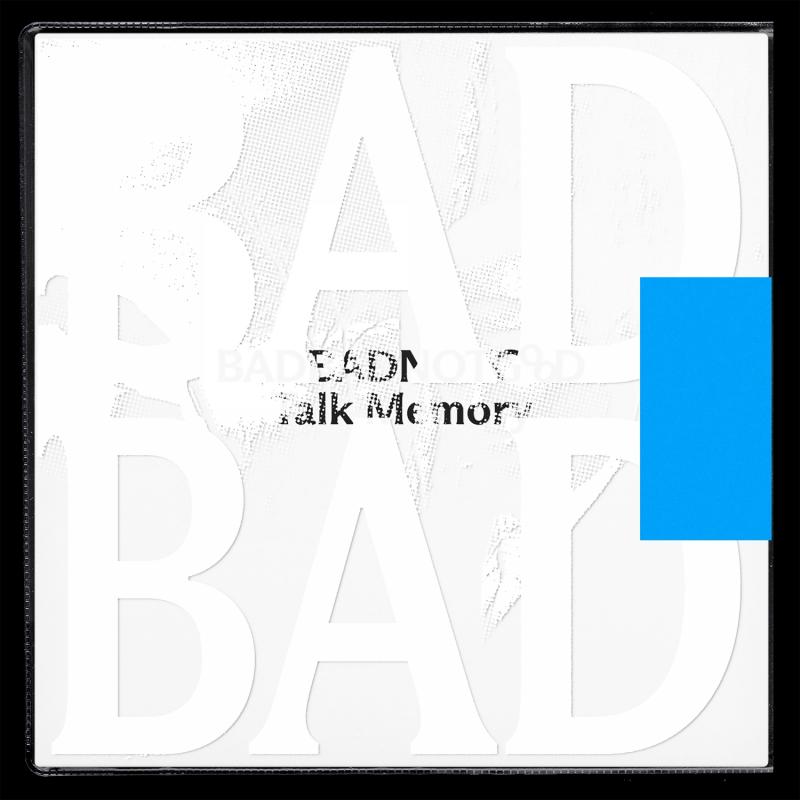Album: BADBADNOTGOOD - Talk Memory | reviews, news & interviews
Album: BADBADNOTGOOD - Talk Memory
Album: BADBADNOTGOOD - Talk Memory
Jazz/hip-hop mavericks' psychedelic voyage has a Hollywood ending

Jazz’s most popular expressions today stand on or just over its borders: Thundercat’s rubbery bass virtuosity and dreamy laptop soul, Robert Glasper’s improv R&B, Squarepusher’s spontaneous electronica, Snarky Puppy’s jam-band anthems, GoGo Penguin’s rave piano trio, or The Bad Plus’s rock covers.
Which is to say that the jazz border wars once raging around BADBADNOTGOOD have ceased to apply. Academically fluent in jazz harmonics but avid hip-hop fans, the Canadians’ support from Tyler, the Creator in 2010 has led to stellar collaborations from Ghostface Killah to Rihanna, to Kendrick’s DAMN and Black Panther soundtrack.
Perhaps unsurprisingly, Talk Memory is the first BADBADNOTGOOD album in five years. It’s been described as a return to roots, which could mean anything from MF Doom to Sun Ra. It’s actually a brightly coloured psychedelic voyage, embarked on with audible optimism and love. Nine-minute opener “Signal From the Noise”, co-produced by Floating Points, begins with an industrial hum, haunted keyboards giving way to stalking brass, rushing electric guitar, a still, pastoral pause, mesmeric chimes and a final fall back into a buzzing swirl. It’s a ritualistic start, a ceremony clearing the ground to be covered.
Alexander Sowinski’s soft drum tattoo, Leland Whitty’s rolling, dipping sax and guest Brandee Younger’s sympathetically rippling harp help the band press on through the aptly titled “Unfolding (Momentum 73)”, exploring and parting veils. Solos are integrated into a unified approach, returning to primal, New Orleans verities. But it’s Talk Memory’s rich use of strings which helps define its wide, warm world. On “City of Mirrors”, they speak the language of lush urban romance, equal parts spiritual jazz and Hollywood, Kamasi Washington and the Hart to Hart theme.
“Open Channels” is a classic Side 2 opener, announcing a new journey as the sax rises into hazy caves of keyboard stalactite-drips and hi-hat waterfalls. “Timid Intimidating” then deploys flute and soprano sax, speeding fuzz-guitar and tumbling break-beats, before the title track further reconsiders the increasingly malleable tradition of jazz(-like) piano trios. Dramatic and emotional, varied and coherent, questing and effervescent, Talk Memory is a worthy return.
The future of Arts Journalism
You can stop theartsdesk.com closing!
We urgently need financing to survive. Our fundraising drive has thus far raised £49,000 but we need to reach £100,000 or we will be forced to close. Please contribute here: https://gofund.me/c3f6033d
And if you can forward this information to anyone who might assist, we’d be grateful.

Subscribe to theartsdesk.com
Thank you for continuing to read our work on theartsdesk.com. For unlimited access to every article in its entirety, including our archive of more than 15,000 pieces, we're asking for £5 per month or £40 per year. We feel it's a very good deal, and hope you do too.
To take a subscription now simply click here.
And if you're looking for that extra gift for a friend or family member, why not treat them to a theartsdesk.com gift subscription?
more New music
 Moroccan Gnawa comes to Manhattan with 'Saha Gnawa'
Trance and tradition meet Afrofuturism in Manhattan
Moroccan Gnawa comes to Manhattan with 'Saha Gnawa'
Trance and tradition meet Afrofuturism in Manhattan
 Soulwax’s 'All Systems Are Lying' lays down some tasty yet gritty electro-pop
Belgian dancefloor veterans return to the fray with a dark, pop-orientated sound
Soulwax’s 'All Systems Are Lying' lays down some tasty yet gritty electro-pop
Belgian dancefloor veterans return to the fray with a dark, pop-orientated sound
 Music Reissues Weekly: Marc and the Mambas - Three Black Nights Of Little Black Bites
When Marc Almond took time out from Soft Cell
Music Reissues Weekly: Marc and the Mambas - Three Black Nights Of Little Black Bites
When Marc Almond took time out from Soft Cell
 Album: Mobb Deep - Infinite
A solid tribute to a legendary history
Album: Mobb Deep - Infinite
A solid tribute to a legendary history
 Album: Boz Scaggs - Detour
Smooth and soulful standards from an old pro
Album: Boz Scaggs - Detour
Smooth and soulful standards from an old pro
 Emily A. Sprague realises a Japanese dream on 'Cloud Time'
A set of live improvisations that drift in and out of real beauty
Emily A. Sprague realises a Japanese dream on 'Cloud Time'
A set of live improvisations that drift in and out of real beauty
 Trio Da Kali, Milton Court review - Mali masters make the ancient new
Three supreme musicians from Bamako in transcendent mood
Trio Da Kali, Milton Court review - Mali masters make the ancient new
Three supreme musicians from Bamako in transcendent mood
 Hollie Cook's 'Shy Girl' isn't heavyweight but has a summery reggae lilt
Tropical-tinted downtempo pop that's likeable if uneventful
Hollie Cook's 'Shy Girl' isn't heavyweight but has a summery reggae lilt
Tropical-tinted downtempo pop that's likeable if uneventful
 Pop Will Eat Itself's 'Delete Everything' is noisy but patchy
Despite unlovely production, the Eighties/Nineties unit retain rowdy ebullience
Pop Will Eat Itself's 'Delete Everything' is noisy but patchy
Despite unlovely production, the Eighties/Nineties unit retain rowdy ebullience
 Music Reissues Weekly: The Earlies - These Were The Earlies
Lancashire and Texas unite to fashion a 2004 landmark of modern psychedelia
Music Reissues Weekly: The Earlies - These Were The Earlies
Lancashire and Texas unite to fashion a 2004 landmark of modern psychedelia
 Odd times and clunking lines in 'The Life of a Showgirl' for Taylor Swift
A record this weird should be more interesting, surely
Odd times and clunking lines in 'The Life of a Showgirl' for Taylor Swift
A record this weird should be more interesting, surely

Add comment